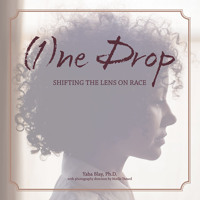Analysis of a Tri-Racial Isolate
Human Biology
Volume 36, Number 4 (December 1964)
pages 362-373
William S. Pollitzer
Department of Anatomy
University of North Carolina, Chapel Hill
Based on a paper presented at the meeting of the American Association of Physical Anthropologists in Philadelphia, May 2, 1962
A relatively isolated population in the state of North Carolina, composed of persons who call themselves Indian but who appear to be of tri-racial origin, provides a model for the study of analysis by gene frequencies of a mixed population of White, Negro, and Indian ancestry.
A people considered Indian is known to have occupied this territory by the mid-eighteenth century; they spoke English, tilled the soil, and owned slaves. English, Scotch Highlanders, and French Huguenots migrated into the area in the eighteenth century also. Planters from neighboring states settled in this vicinity, often bringing slaves and a few free Negroes with them. The most common names of the free Negroes are the same as those of the present-day mixed population.
The origin of the Indian component of this hybrid population is open to speculation; three ideas have been advanced. The most colorful theory is that the people of the present isolate are the descendants of Raleigh’s famous “Lost Colony” who mixed with the Croatan Indians, an Algonquin-speaking tribe on the coast. Some similarity in the names of the colonists and the names in the present population, plus a few cultural traits, have been construed as evidence for this view. Another suggestion is that the Cherokee, a powerful Iroquois-speaking tribe who had general overlordship in the Western Carolinas, contributed the Indian genes to the hybrid group. Finally, the view has been advanced that the Siouan-speaking tribes who lived in the Piedmont Carolinas, e.g., the Catawba, were the Indian stock involved.
Considerable phenotypic variation is found within the isolate today, with extremes of skin color from light to dark and of hair form from very curly to straight- The morphology of the face also suggests broad racial backgrounds. It is therefore of interest to learn what the blood factors and hemoglobins tell of the composition of this population of multiple racial origins.
In 1958, in cooperation with Dr. Amoz Chernoff, blood samples were…

